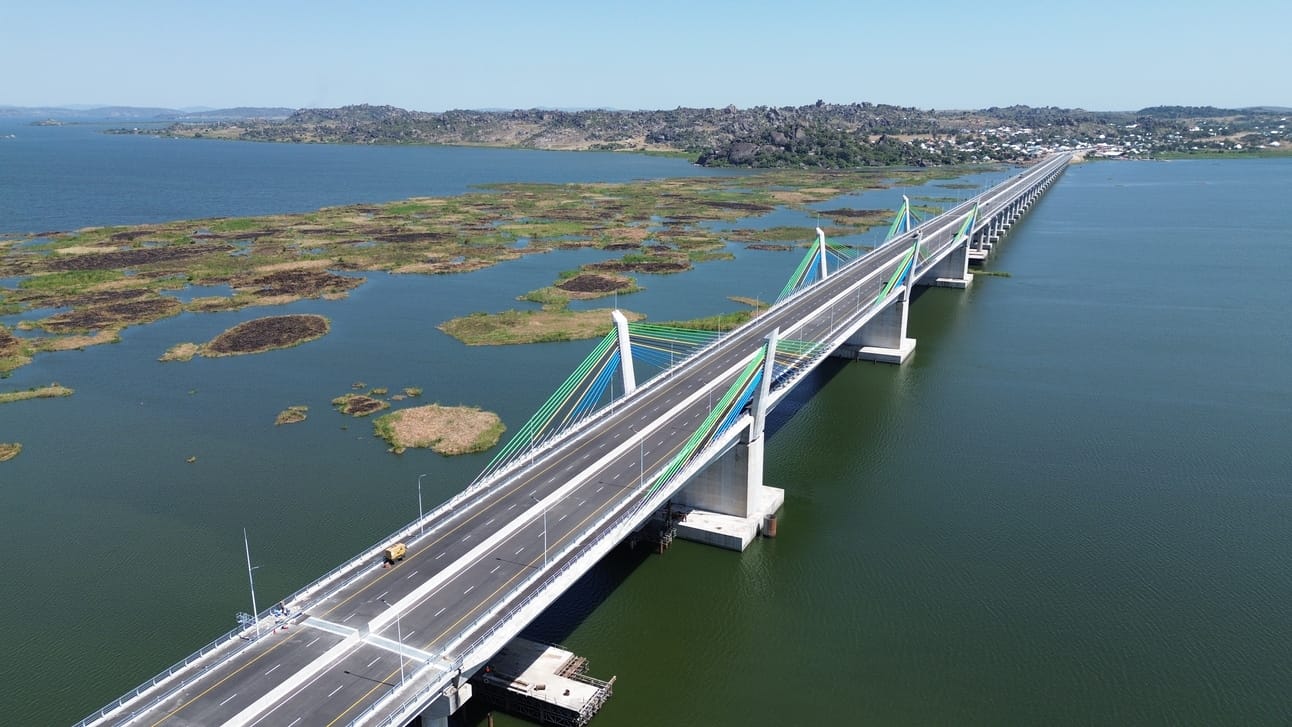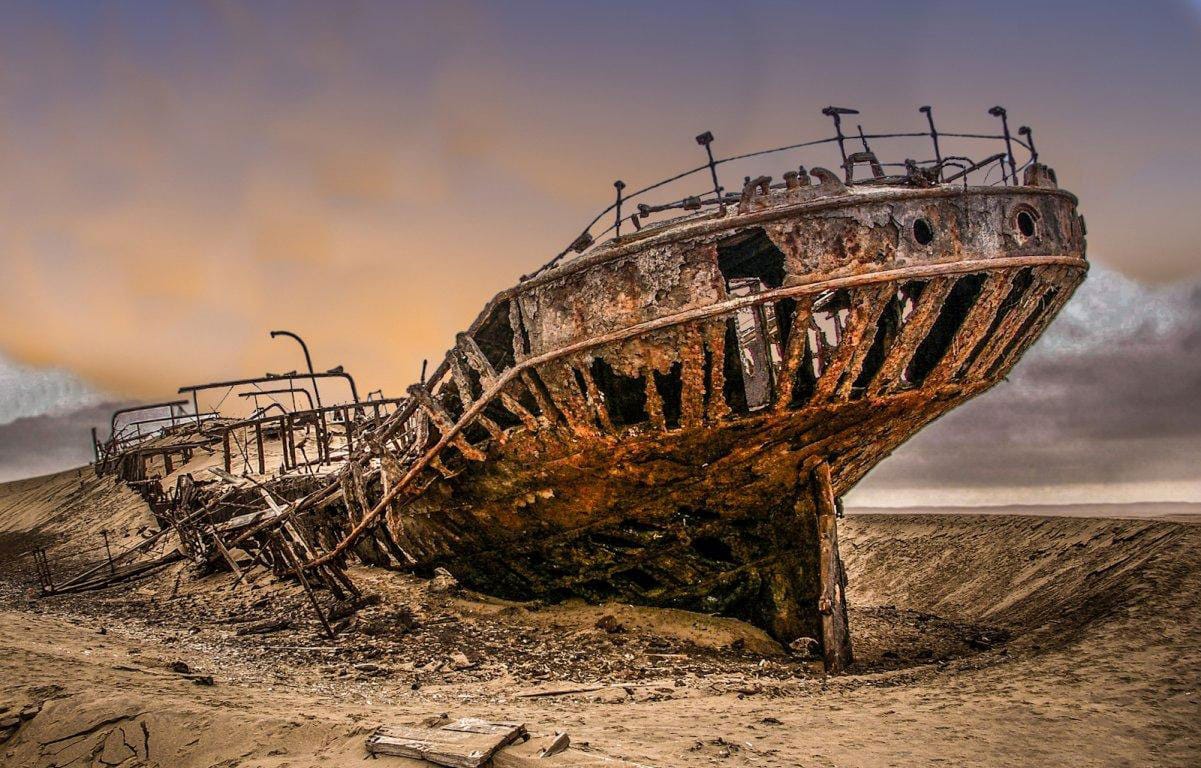Who Rules the Power Game? Who’s Chasing African Startups? Who Just Built a Bridge Across a Lake? This week’s Africa Brief is sparking from all directions: sovereign wealth funds are getting bolder, Egypt’s $35B megadeal just skewed the FDI charts and INTERPOL is sounding the alarm on a $4B cybercrime wave. Hilton and Marriott are racing across the map, NBA Africa is now worth $1B and Tanzania just sliced Lake Victoria in half with East Africa’s longest bridge. Also, the World Bank and AfDB are working hard to light up 300 million lives. The future’s electric and Africa’s laying the wires.
P.S. I am planning to take a short holiday next week, so we will see you again on July 11. For those of you in the United States, Happy 4th of July next week!
Africa Trivia
Which country leads Africa in renewable energy as a % of total electricity generation?
A) Egypt
B) Kenya
C) Ethiopia
D) South Africa
Graphic of the Week
Africa’s Power Rules Improve

Source: AfDB
The Electricity Regulatory Index (ERI) 2024 report shows regulatory reform across Africa is gaining real traction with stronger rules, better governance and improved energy access strategies.
Top performers:
Senegal (0.892), Kenya (0.8915) and Uganda (0.8546) lead the continent.
Niger and Liberia made dramatic jumps due to legal and institutional reforms.
Big gains:
Average ERI score hit 0.668, up from 0.495 in 2022.
Countries scoring below 0.500 fell from 19 to 6.
Regulatory Governance Index (RGI) scores above 0.8 were recorded in 23 countries.
Sector insights:
Kenya and Tanzania are standouts in national electrification via grid + off-grid solutions.
Nigeria and South Africa are scaling mini-grid and renewable policy implementation.
DRC and Chad remain laggards with <20% electrification and poor regulation.
Why it matters: A growing number of African nations are building regulatory capacity to attract investment, improve energy access and transition to cleaner systems. This gives me some hope for Mission 300, a major World Bank and AfDB initiative aiming to provide electricity to 300 million people by 2030.
Read More: Electricity Regulatory Index for Africa 2024

Source: Semafor
What We Are Reading
Africa: Afreximbank will appoint a new president this week in Abuja after a Fitch downgrade raised concerns over its risk management and solvency (Semafor).
Angola: Rising oil prices amid Middle East tensions may help Angola meet its 2025 budget (Bloomberg); The U.S. is finalizing more than $500M in financing for the Lobito Corridor, a railway to transport critical minerals from central Africa to Angola’s Atlantic coast (Bloomberg); President Lourenço urges U.S. firms to invest beyond oil and minerals into sectors like autos, tourism, cement and steel (Bloomberg). Hopefully, some of you were in Luanda for the Corporate Council on Africa’s event this week!
Côte d’Ivoire: President Alassane Ouattara delays announcing if he will seek a fourth term in the October 2025 elections, heightening uncertainty in a race where key opposition figures have been disqualified (Bloomberg).
DRC extended a three-month cobalt export ban and plans to sign a U.S.-brokered peace deal with Rwanda aiming to stabilize the region, attract foreign investment and capitalize on its control of more than 80% of global cobalt, amid conflict that has displaced seven million people (Mining.com).
Ethiopia: Foreign banks can now apply for licenses to operate in Ethiopia—via subsidiaries, branches or up to 40% equity—under a law passed in December 2024 that ended decades of banking protectionism (Reuters).
Ghana: As gold prices soar, mining companies are deploying drones and seeking military protection to combat rising incursions by illegal miners (Reuters).
Kenya: On June 25, Kenyans marked one year since the deadly protests over the controversial Finance Bill, commemorating victims and protesting ongoing police brutality (Reuters).
Mauritius: The government is seeking international investors to build and operate a floating power plant to meet rising electricity demand and diversify energy sources (Reuters).
Morocco signed a military cooperation agreement with Rwanda to deepen defense ties and bolster regional security (Morocco World News); The central bank kept its interest rate at 2.25%, citing stable inflation and a positive growth outlook (Reuters).
Nigeria: West Africa is keen to pursue energy and mineral deals with the U.S. but Nigeria’s foreign minister says U.S. travel bans are making negotiations difficult (Reuters); Nigeria and Brazil signed a $1B deal to boost agriculture, food security, energy and defense through mechanized farming and investment reforms (Reuters).
Rwanda and the DRC agreed to sign a U.S. and Qatar-brokered peace deal on June 27 to end eastern Congo fighting and open access to key minerals (U.S. Department of State).
Tanzania: On June 19, President Hassan inaugurated the Chinese-built Magufuli Bridge, reducing Lake Victoria crossing time from two hours to five minutes and boosting regional trade (CTGN).
Uganda: President Museveni, in power since 1986, will seek reelection in 2026, confirming plans to extend his nearly 40-year rule (Reuters).
Zimbabwe: Kirsty Coventry becomes the first African and first female International Olympic Committee president on the organization’s 131st birthday, beginning an eight-year leadership term (AP News).
Business & Finance in Africa
Africa’s Sovereign Strategic Shift

Source: Joint SDG Fund
Sovereign Wealth Moves in Africa: Africa now has more than 15 strategic sovereign wealth funds (managing $160B and growing), mostly launched since 2010. These funds are small but bold, targeting infrastructure, health, climate and startups. Here’s a quick rundown of some strategies.
Ethiopia (EIH) leads Africa with $45B in assets, owns 40 enterprises and is accelerating industrial consolidation.
Libya (LIA) grew to $39.5B, unlocked frozen assets and launched a 2025 to 2027 SDG-aligned strategy.
Egypt (TSFE) manages $12B with major privatization deals and hotel partnerships underway. The fund uses public land as capital and is investing in green hydrogen, healthcare, fintech and public-private startups via co-investment platforms.
Nigeria (NSIA) is anchoring blended finance deals with DFIs to crowd in private capital, especially in renewables, agriculture, healthcare and SME growth platforms.
Angola (FSDEA) is active in VC-like investments across tourism, agriculture and health sectors.

Source: Forbes Middle East
Global sovereigns want in: UAE’s ADQ and Saudi’s PIF have invested $8B+ in Africa since 2018, targeting energy, infrastructure and financial services.
Why it matters: These funds are using strategic financing structures to de-risk tough sectors, invest at early-stages and anchor blended deals that could unlock real local capital markets.
Read more: 2025 Sovereign Impact Report
Africa’s FDI Spike

Source: UNCTAD
In 2024, Africa defied global trends with a 75% surge in FDI—driven largely by Egypt’s $35B Ras El-Hekma megaproject. Strip that out and the continent still posted a respectable 12%+ gain.
Key takeaways:
Africa’s share of global FDI doubled to 6%, but remains modest overall.
Greenfield project value fell 5%, even as the number of projects ticked up—signaling smaller-scale bets.
SDG sectors (health, education, water) shrunk, while telecom bucked the trend with near-2x growth.
Investment in extractives plunged 48%, reflecting price drops and investor caution.
Why it matters: Africa is getting noticed—but not yet getting funded where it counts. Real estate and infrastructure dominate, while SDG-aligned sectors lag. To shift from headlines to impact, the continent needs stronger public-private pipelines and smarter incentives.
Read more: UNCTAD World Investment Report.
The New Five-Star Frontier

Source: UNWTO
Hilton and Marriott are expanding fast across Africa as tourism surges.
Hilton plans to triple its footprint to 160+ hotels—entering Angola, Ghana and Benin for the first time.
Marriott will add 50 new properties by 2027, including in Cape Verde, Côte d’Ivoire, DRC, Madagascar and Mauritania.
Why now? International arrivals are up 9% YoY, outpacing 2019 levels, with airlines adding routes and tourism contributing up to 15% of GDP in some countries.
Hot spots: Accra, Dakar, Addis Ababa and Entebbe are seeing a wave of new flights and investment.
Read more: Reuters. And I have also heard a rumor (unverified) that Four Seasons plans to redevelop the Ghion Hotel property in Addis Ababa. That would be a game changer!

Source: Semafor
Digging further, a recent report by W Hospitality Group shows 577 hotels with 104,444 rooms in the 2025 pipeline in Africa—a 13.3% jump from 2024. North Africa and sub-Saharan Africa show distinct growth trends, with development accelerating across both regions.
Tech & Society in Africa
$4B Cyber Heist

Source: Interpol
According to a new INTERPOL Africa Cyberthreat Assessment Report 2025, cybercrime is costing Africa ~$4B/year, with Nigeria, South Africa and Kenya the top targets.
Phishing, business email compromise (BEC) and mobile money fraud are the most common attack types.
Financial services and government agencies are the most breached sectors.
Only 29 of 54 African countries have data protection laws in place and many lack enforcement capacity.
Informal economies and mobile-first systems are easy prey for cybercriminals.
Why it matters: As Africa digitizes fast, cyber risk is outpacing policy and enforcement. Investment in cybersecurity is still lagging far behind digital adoption and that’s a growing liability for startups, governments and foreign investors.
Sports in Africa
The Sports Economy Rises
The 2024 Strength in Numbers report by the Africa Sports and Creative Institute reports that Africa’s sports sector is worth $14B annually (currently 0.5% of GDP), with massive room to grow—possibly to 5% of GDP.
The continent’s 1.4 billion people and young, digital-savvy fans are fueling investor interest—from the NBA and NFL to FIFA and Basketball Africa League (BAL).
Big bets:
$284M stadium in Senegal
$100M into Ghana’s Right to Dream Academy
NBA Africa now valued at $1B
Hot growth zones: sports tech, betting ($5B+), media rights and youth development.
Barriers? Weak infrastructure, limited data and low access to capital.
But overall, the sports economy is looking pretty interesting.
Infrastructure in Africa
Longest Bridge in East Africa

Source: CGTN
A 4.66 km cable‑stayed “Dream Bridge” now links Kigongo and Busisi over Lake Victoria. On June 19, 2025, Tanzania officially opened the John Pombe Magufuli Bridge, now the longest bridge in East Africa. It cuts travel from 2 hrs (or 40 min ferry) to 5 min by road, reducing freight costs 10 to 15 % and energizing trade, farming, tourism and local jobs for more than a million people. In a nutshell: Tanzania just halved Lake Victoria (CTGN).
Explorations in Africa
Namibia’s Skeleton Coast

Source: Nomad Africa
I ran across this image and it sent me on a rabbit trail, feasting on haunting images from Namibia’s Skeleton Coast. The best set I found is by Glenda Gordon from 2019. Don’t miss it. My husband promised me an anniversary trip to Namibia. I can’t wait.
Africa Trivia Response
Answer: B) Kenya (over 80% renewables). Source: IRENA 2024 Africa Energy Outlook
Big thanks to my fellow Renew Capital researchers Ruth Ayalew and Shaynerose Magabi for the Africa Brief. This is Laura Davis, currently in Washington, D.C. for a few weeks before heading back to Africa. If you are enjoying the brief, please share it with your friends and family. See you all next week.
Email us at ([email protected]) if you have some scuttlebutt we should follow up on.


